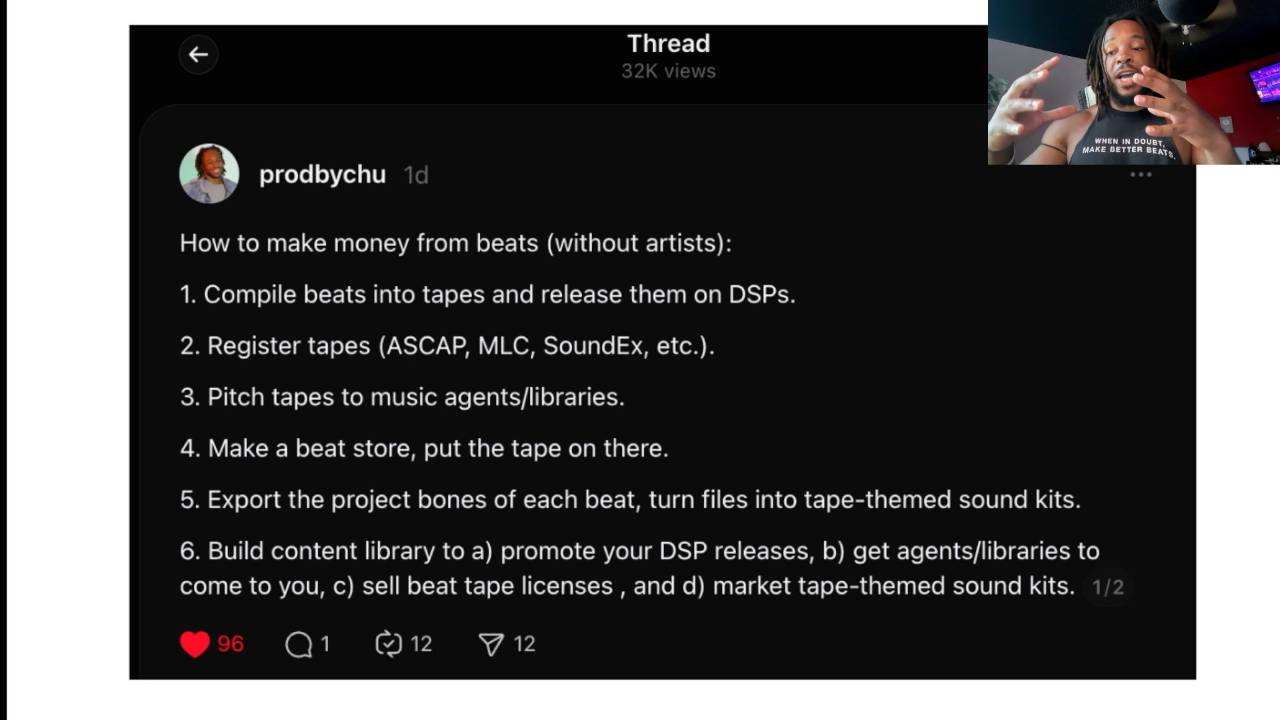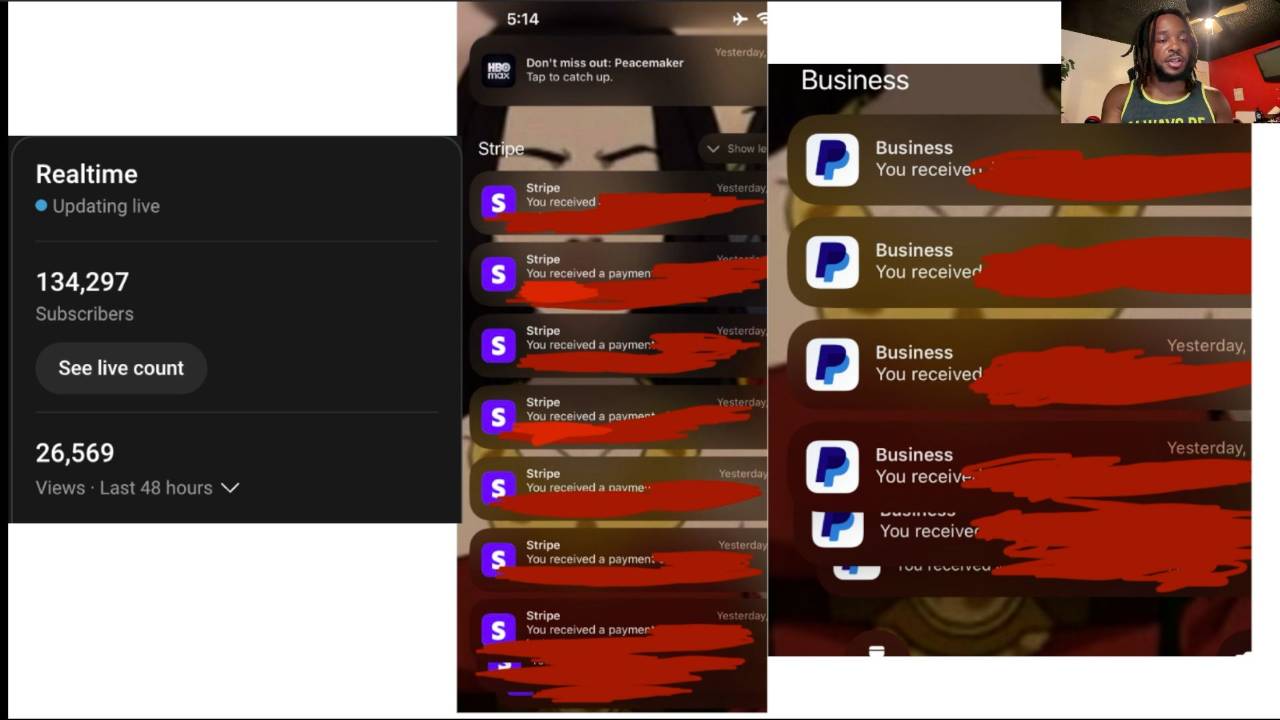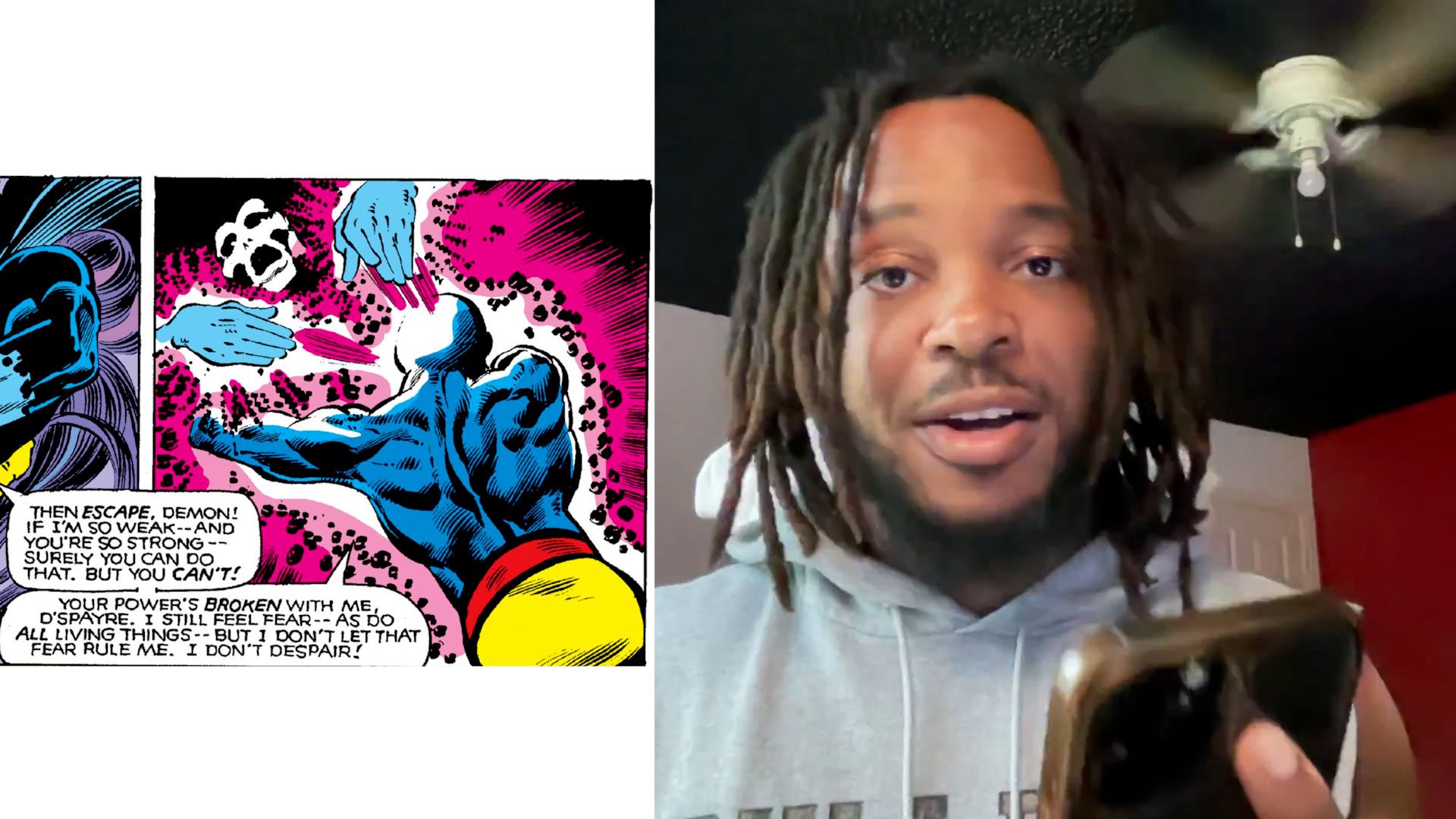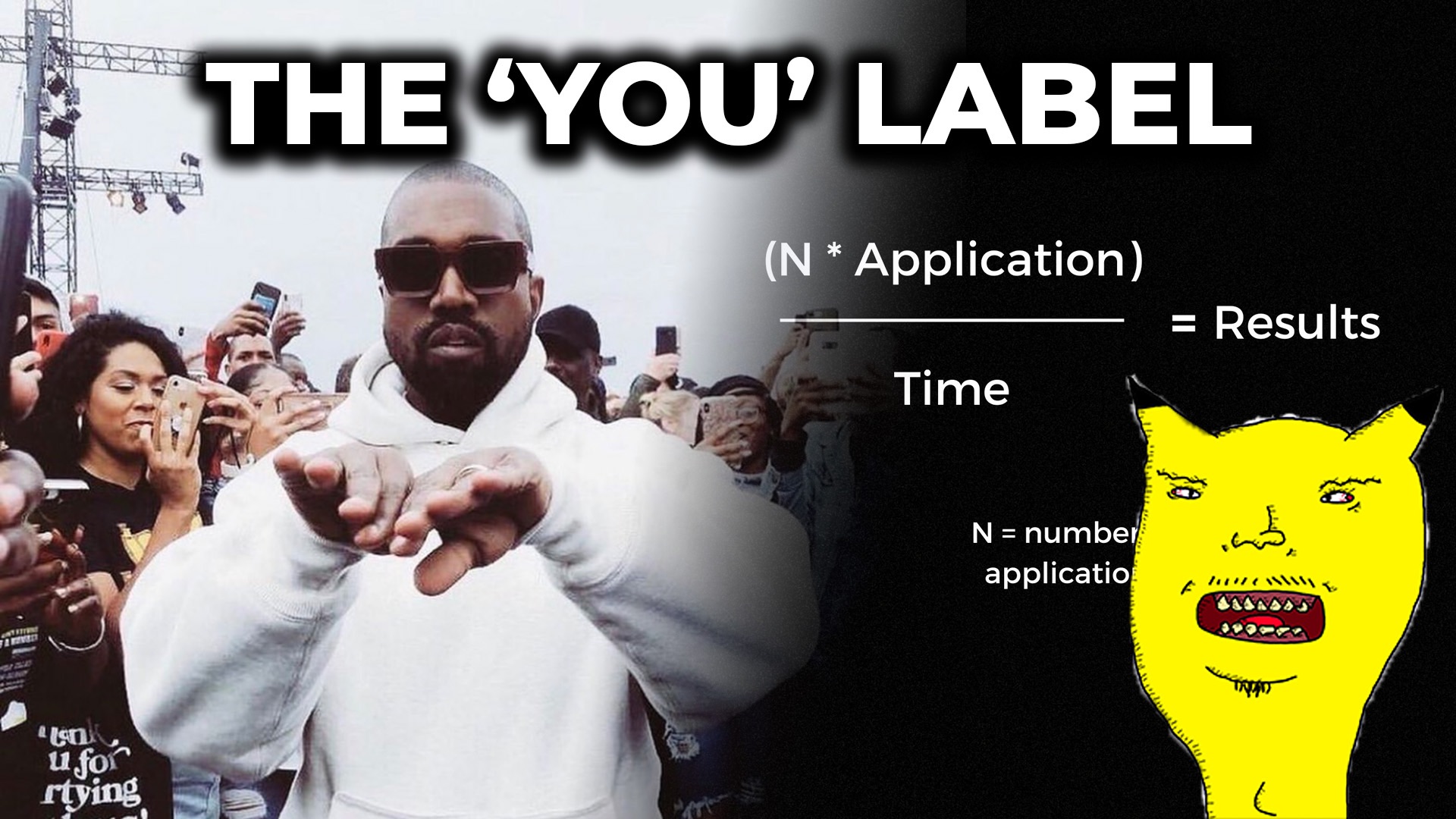
Get signed to a label today
"One of the most empowering moments of my life came when I realized that life is a question and how we live it is our answer. How we phrase the questions we ask ourselves determines the answers that eventually become our life." - Gary Keller, Jay Papasan.
What if you could get signed by a label today?
What if this label was tailor made to accommodate your needs as a creative?
How would it feel if this label did everything you wanted and nothing you didn’t?
Then…
What if you could sign to this label today?
Right now.
By the end of this newsletter.
Would you sign?
(Let’s see if you still feel the same by the end).
New kind of label.
This is a new age of music.
One where the artist controls every aspect of the creative act (if they so choose).
We can:
-
Make our own instrumentals (efficiently).
-
Record our own vocals (cleanly).
-
Mix our own tracks (quickly).
This used to cost tens of thousands of dollars in equipment and studio time. Now it cost less than a Playstation.
All thanks to digital audio workstations (which are getting easier to use). And quality recording equipment at affordable costs.
Let’s go deeper and talk business.
We no longer have to depend solely on one-to-few marketing tactics like:
-
Handing out tapes at gas stations
-
Waiting outside of the studios sessions of big artists/producers
-
Begging family members to share your work
-
Performing at open-mics
The Internet gives us affordable access to one-to-many marketing through content creation:
-
2.7 billion monthly users on YouTube
-
2.4 billion monthly users on Instagram
-
The ability to build email lists from your social media following (IRL and on the web)
-
Websites
-
SMS communication with your audience
-
Streaming platforms (Spotify, Tidal, Apple Music).
Let’s take it even further and talk about money.
The modern music business gives us direct access to monetization.
We used to have to go through labels just to have a hope of getting paid royalties and publishing fees. There was no way of getting paid to tell our story through content.
We’d have to pay to do that and hope the traffic helped us gain traction. That’s what record labels still do for artists with things like ‘GQ’ interviews and ‘Genius’ breakdowns.
Today we have endless ways of monetization for our art that require no middle-men (besides the bank and the platform issuing the payment):
-
YouTube Ad Rev.
-
Boutique distributors (Like DistroKid).
-
Merch (which can be print-on-demand for better leverage and lower costs).
-
Brand deals (influencer marketing).
-
Services (mixing, teaching, etc.).
-
Syncs.
-
Leasing (beats, hooks, etc.).
We can create each with affordable equipment in a DAW and market them through content we create consistently.
The “You” Label
"When you see someone who has a lot of knowledge, they learned it over time. When you see someone who has a lot of skills, they developed them over time. When you see someone who has done a lot, they accomplished it over time. When you see someone who has a lot of money, they earned it over time." - Gary Keller, Jay Papasan.
The only 3 differences between you and a label are in:
-
Knowledge
-
Application
-
Leverage
That’s what people want when they say, “I want to get signed.”
They don’t have knowledge of how to perfect their craft to where it’s marketable. And they definitely don’t know how to market it. A label needs to come in a develop them.
Most artists and producers don’t have any means of application. They make music and that’s it. They need the help of a label to monetize and create repeat success.
We all want leverage. The ability to bring an idea into reality (and receive compensation).
Anyone can release an album. But few artists/producers can release an album to an audience of people who care. Labels have consumers lined up - most indie acts don’t.
You might think the joke is on you for the small chance you have of getting signed.
And you’re right. The joke is on you (but not for the reason you think).
The joke is on you because you don’t know how much control you have.
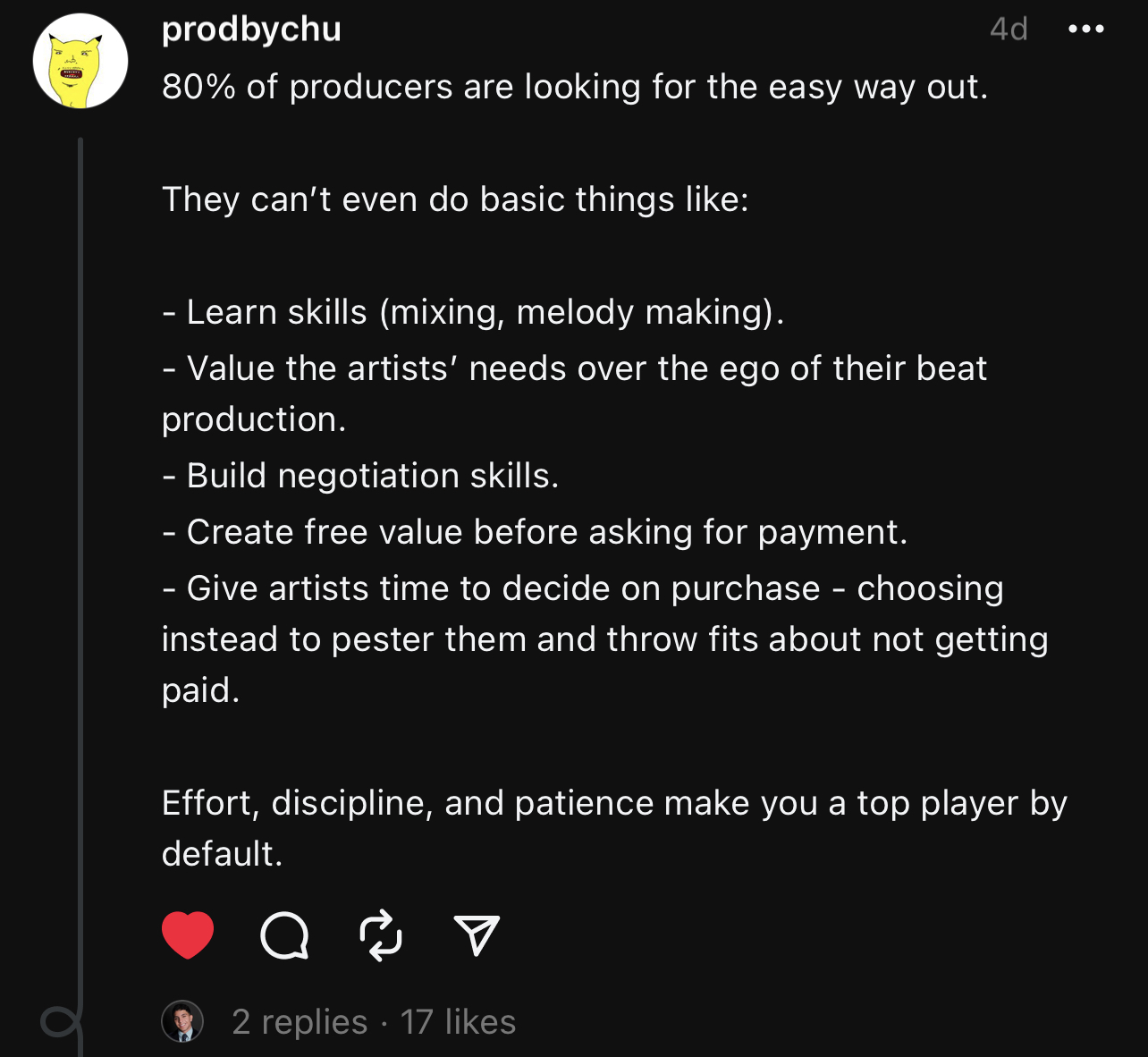
Increase your knowledge.
You can learn to make your music so good it’s valuable to anyone who hears it. And you can learn how to get more people to listen.
Most people will complain about it being too hard. Or, falsely assume that their craft doesn’t need to constant refining - that ‘decent’ is good enough.
But ‘decent’ is not valuable (and it sure as hell doesn’t pay the bills).
Success and money come only to those who create value.
The small percentage of people we see gain success are those who go out and learn.
They farm stats, grind the low levels, and build their skill tree over time.
Apply your knowledge.
You can apply what you learn.
Artists can do free features. Producers can give out free beats.
This requires the letting go of ego in service of the work and craft (most people can’t do that, and that’s why they fail).
The other thing is that “application” implies a functional equation:
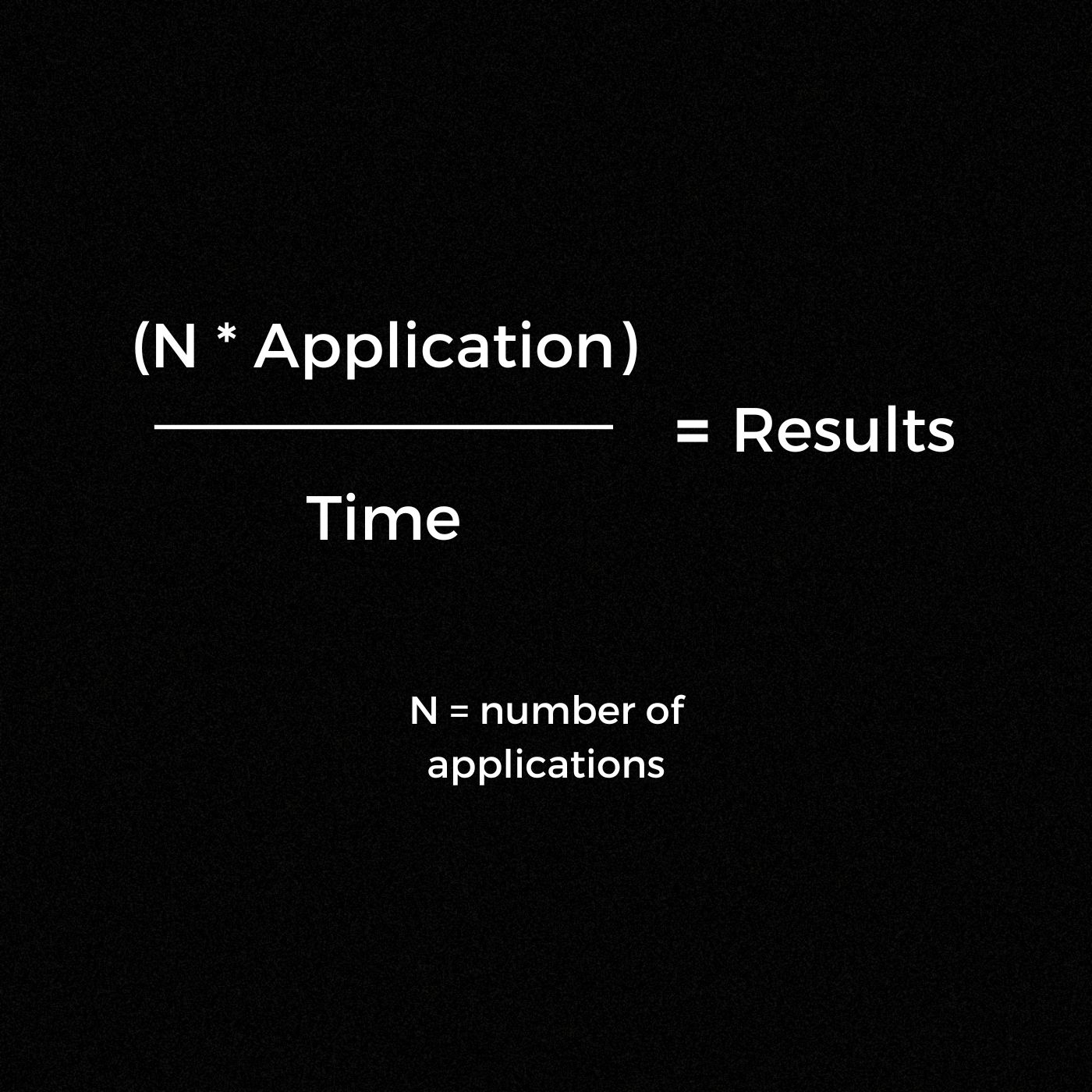
We want high amounts of application within a short amount of time.
One producer may only get 1 song done this year because they won’t work for free.
Ending up with fewer instances of application (and fewer results).
Imagine you give out 300 beats a month and just 5% of them turn into finished songs.
That’s 15 songs by the end of each month.
180 songs by the end of the year.
By the end of 180 songs, you’ll have molded your production into something that artists love. That’s worthy of payment.
More instances of results lead to confidence (the formula is addressed in this newsletter).
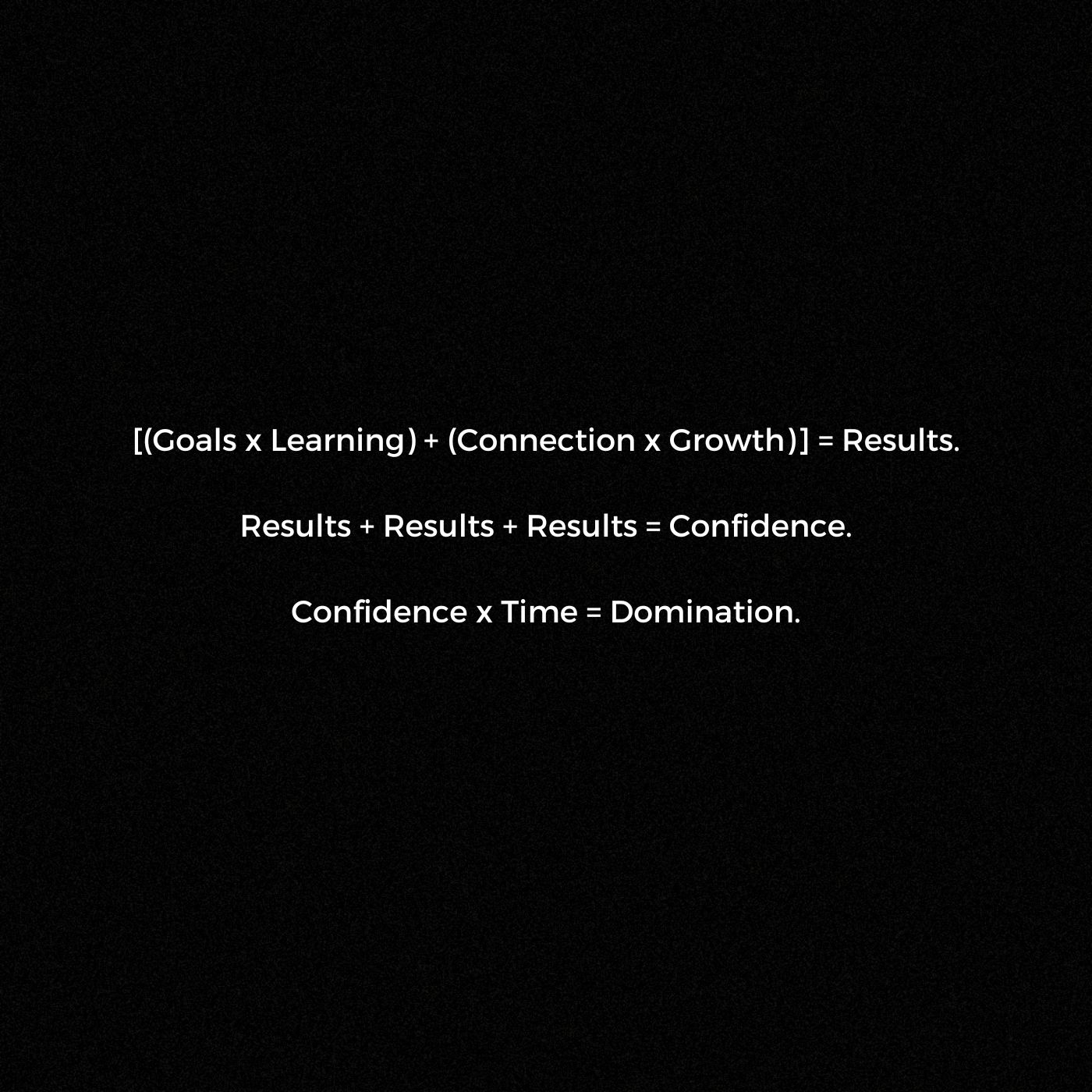
Spending more time being confident increases your chances of reaching dominance (in anything).
Confidence comes from knowing that you’re good at what you do. Self-faith like that comes only from testing your ability.
At first you have to do free work - this is the only way to get feedback from those taking part in the space.
If no one will work with you for free, you’ll have a hell of a hard time getting people to pay you to do it.
There’s the flip side too.
If people can’t get enough of your free stuff, then you know you’re on to something good (something that might be worth money at some point).
Leverage.
You can build your own leverage.
That’s what a label is. A company or brand that has built social and capital leverage.
Labels can leverage in 2 ways:
-
Content marketing tools (playlist, podcast, radios)
-
Money to pay for content marketing tools from others.
You can create your own content distribution system.
Content and distribution are the most important parts of your “You Label.”
Without content, you have no way to build distribution.
No distribution means you can’t get your music in front of people when you want to.
Create content to grow that system.
Then create monetize through your content distribution system.
3 ways to monetize your label
"We live in an amazing time. The ivory towers, which once courted the esteemed grantors of permission, are crumbling. If you have the talent and the desire, approval is no longer needed. Permission, not required. The keys to the dream palace await in open pastures: YouTube, Instagram, Amazon, and any other medium with an audience." - Gary Keller, Jay Papasan.
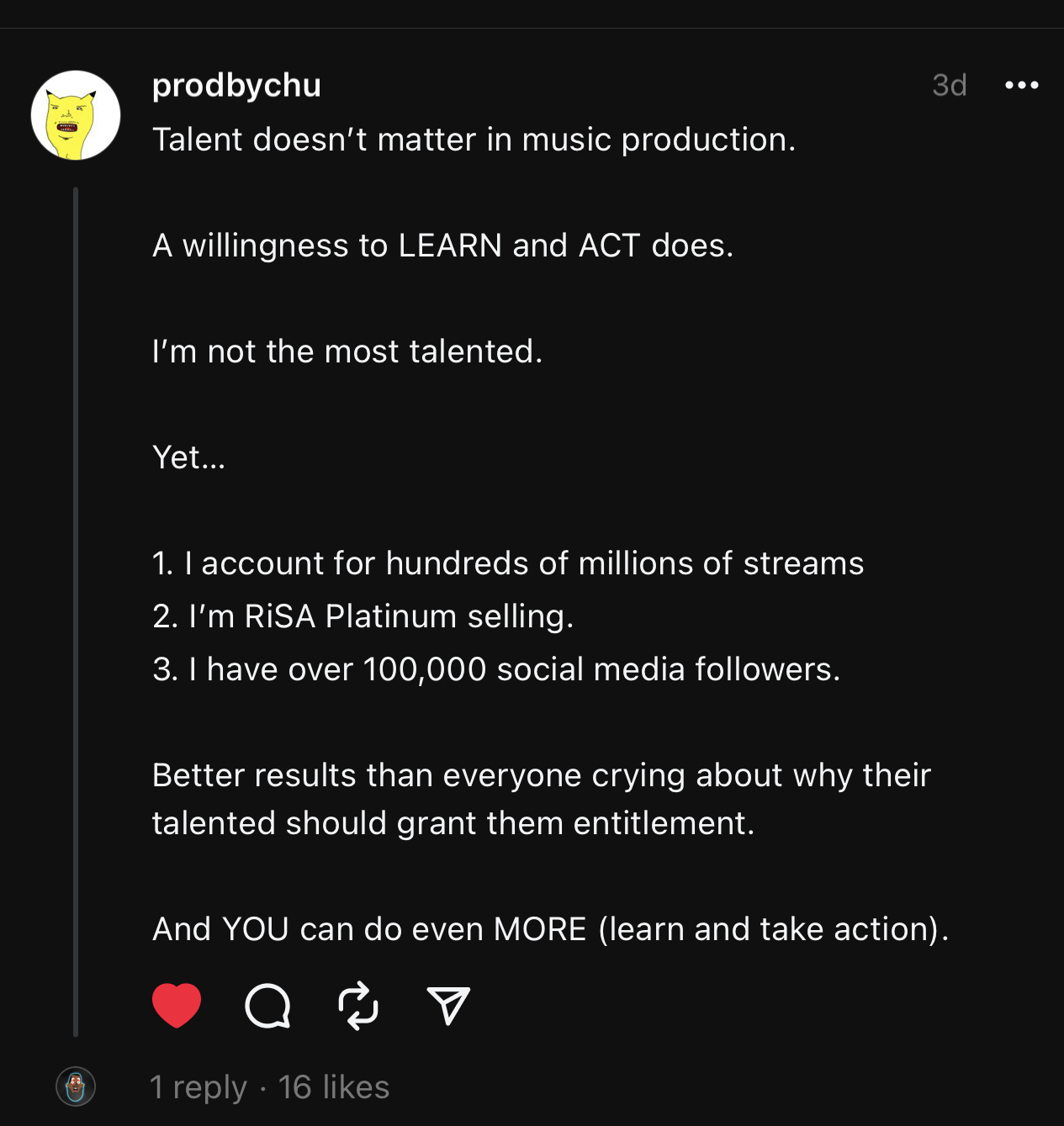
Let’s assume you already make quality music and content (or on the way there).
If not, here are a few areas to focus improvement on:
Here are 3 ways you can use your good music to make money.
#1 - Publishing
I will not bore you with the details of this one.
We’d be here all day talking about things that don’t really matter in the end.
I want to tell you what to do to get the money you’re owed for having any of your music on streaming platforms.
(Whether it’s yours or something you’ve produced for another artist).
First, you need to sign up for a performance rights organization (PRO).
PROs are like a wizard guild that literally protects your performance rights.
They make sure that we get paid.
They have teams that work 24/7 to make sure you are never stressed about getting finessed out of your payouts.
And they are always on call. It’s not robots responding to your emails and calls when you need their help; PROs are actual humans helping other humans (us).
I use ASCAP. But, there’re others like BMI.
I chose ASCAP (for a reason that doesn’t really matter) - and paid a onetime fee of $100.
BMI also has a membership fee. They also have a free account that will at least allow you to collect royalties on the songwriting side of things (a cool feature for beginners).
That will not cover everything you need - but it’s a great place to start.
There’s no excuse not to have a PRO (go pay or get a free account with BMI).
From there, it’s pretty easy to figure out how to register your works within the PRO portal if you want to do it independently. There are a ton of YouTube videos and internet blogs about this.
There are other ways too. You can have a ‘label’ arbitrate your publishing payouts, which makes it easier to register works and get paid for them.
I enjoy using BeatStars publishing. They’re partnered with SonyATV (a trusted brand) - the fee is only $20 per year.
With this, all I have to do is register a song that is on a streaming platform like iTunes or Spotify, and then wait for my money to come.
With Beatstars publishing, I register works I’ve produced and works where I’m the lead artist (example: my beat tapes).
A decent amount of money gets left on the table if you don’t claim your song within a PRO (for reasons that aren’t necessary to explain).
Distrokid (or your distributor of choice) is only going to do so much for you to collect your publishing money, which is why you NEED a PRO.
Speaking of Distrokid - let’s finish this section by talking about other tools you need to collect all your money on every work you create.
1. Distributor (like Distrokid).
We need this to release your own music, period.
Most are about $20 per year. This is also important for collecting some royalties for tracks using beats artists leased from you (but you should also claim those with your PRO too).
2. Soundexchange.
SoundExchange collects performance royalties for Sound Recording Copyright Owners and Featured Artists.
Whenever you are the producer of the beat, you are the copyright owner of the entire song produced, no matter what. The only time this changes is when you sell the exclusive, thus selling your copyright (this is why I rarely sell exclusives - the copyright is almost always worth more to me).
SoundExchange will only pay performance royalties to creative participants (producers, mixers, or engineers) when a direct registrant submits a SoundExchange Letter of Direction (LOD).
3. Songtrust.
Songtrust collects performance and mechanical royalties from about 98% of the global music publishing market. If you use Songtrust, you have access to 65 societies and 215 countries/territories, reducing the need to register your works in multiple places.
#2 - YouTube Ad Rev.
Revenue per milli (RPM, the amount of money you get paid per thousand YT views) isn’t high for producers.
Mine is actually on the higher side and it’s still only $3.75 per 1000 views.
Even so, it’s money I get paid for putting in honest work that provides value.
It’s pretty easy to make money on YouTube.
Just get your channel to monetization status. Then every single view will make you money.
YouTube just changed their monetization requirements for the first time.
You now only need 500 subscribers (used to be 1000) and 3000 hours of watch time (used to be 4000) to become a partner.
Most people cry about it being too hard to get views and grow subs.
That’s your competition. A bunch of crybabies who won’t put in a week of study to figure out what it takes to grow on this very simple platform.
You can easily take everything they want with a bit of focus.
The key is to get good at creating valuable content;
-
Get good at making melodies.
-
Make melody tuts.
-
Post 1-3 times a week (long form melody tuts).
-
Branch to other types of tuts/videos once you get consistent 50-100 views per melody tut.
-
Don’t fall off, don’t fold.
#3 - Beat leases (or hooks - for artists).
I will not explain how this one works (because I already did that in this free course here).
Some important points to make are;
-
It’s easier to get beat sales when you have a more visible brand (it’s easy - create good front end content to grow your brand).
-
It’s a bad idea to depend solely on beat lease income; it’s supposed to be supplemental.
-
If you can sell beats via leveraging your brand, YOU CAN DO THE SAME FOR KITS (just provide value to the community and then plug your VALUABLE products; works for beats AND/OR kits) 🔑
There’s nothing special about me. I became a 95th percentile earner in all of music production, despite having no major records in the United States.
I’m also not a part of those ‘cool kids only’ producer groups.
Nope.
I got here by working and using the exact tools I just shared with you.
Remember the question at the beginning?
Do you still want to sign yourself?
Start building your label today.
And then add yourself to the roster.
Become valuable, share that value.
Blessings,
Darth Chu
Get Sound Kits 👇


